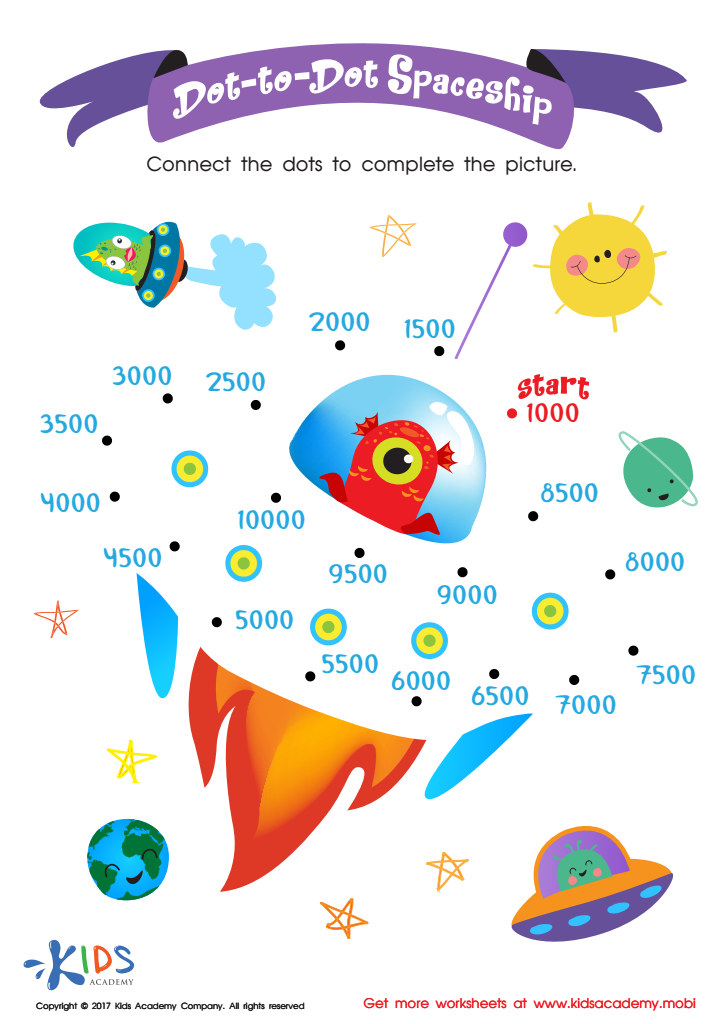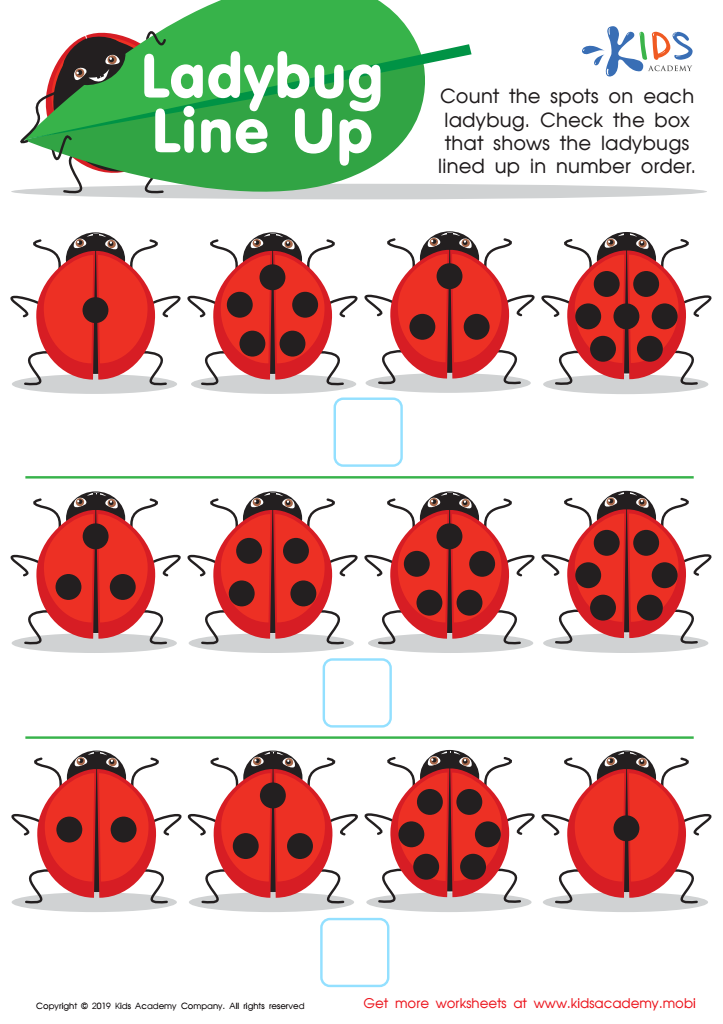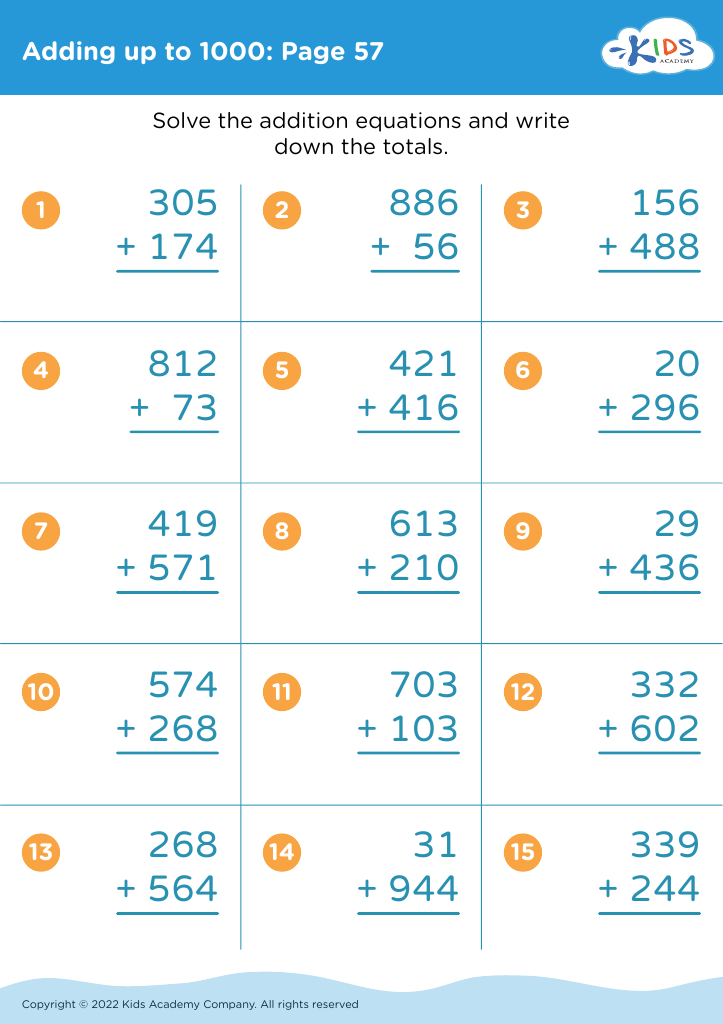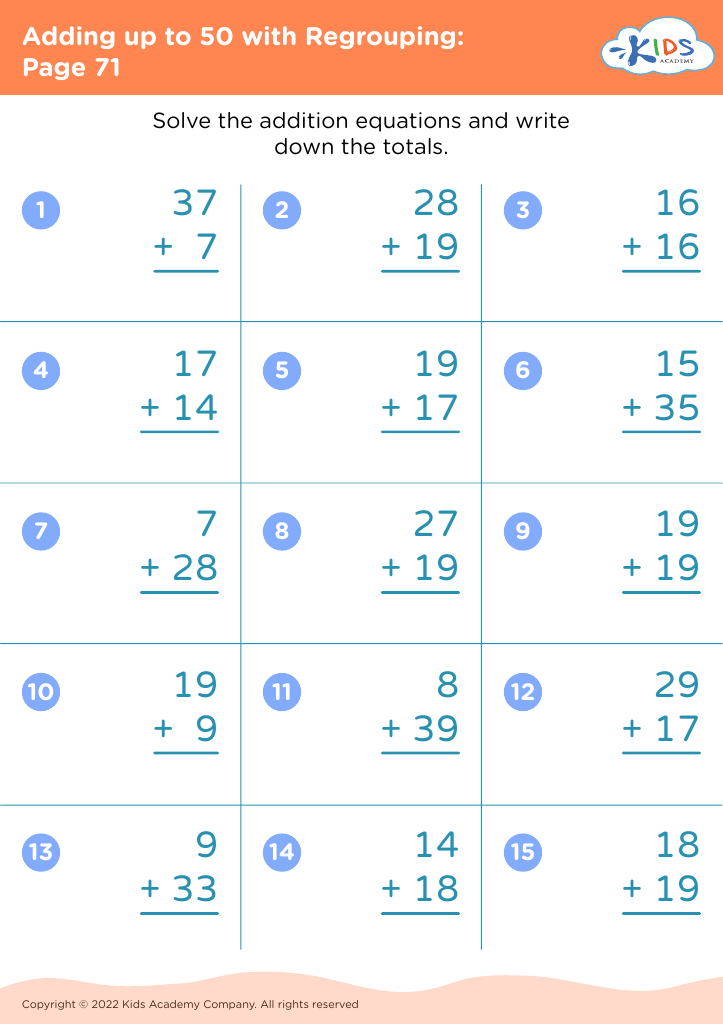Motor skills development Math Worksheets for Ages 6-9
6 filtered results
-
From - To
Discover engaging Motor Skills Development Math Worksheets designed for children aged 6-9 at Kids Academy. Our expertly crafted worksheets blend hands-on activities with math exercises, promoting fine motor skills while bolstering mathematical understanding. These playful learning tools aid in hand-eye coordination, dexterity, and precision through tracing, drawing, and writing tasks that align with key math concepts. Perfect for young learners, the worksheets offer a fun and effective way to integrate essential motor skills development with foundational math education. Nurture your child's growth in both areas with our comprehensive, teacher-approved resources.


Dot to Dot Worksheet for 3rd Grade


Ladybug Line Up Worksheet
Motor skills development is a crucial aspect of a child's overall growth, especially between the ages of 6-9, because these skills directly influence their academic performance, particularly in subjects like math. At this stage, children are in early elementary school where they begin to engage in more complex tasks that require coordination and fine motor skills, such as writing numbers, drawing shapes, and using math manipulatives (like counting blocks or abacuses). Good motor skills enable children to handle such tasks with ease, promoting better learning and understanding of mathematical concepts.
Moreover, developing motor skills also enhances a child's focus and attention span. When tasks like handwriting or using art materials become easier due to refined motor skills, children are more likely to enjoy the learning process instead of feeling frustrated, leading to a more positive attitude toward school and mathematics in general.
Lastly, motor skill activities also promote cognitive development. Tasks involving movement and coordination stimulate brain activity and improve functions such as problem-solving, spatial awareness, and logical thinking—skills that are foundational for grasping math concepts.
Therefore, parents and teachers should actively encourage motor skills development through play, sports, art, and targeted exercises, realizing its immense impact on a child's ability to succeed academically, especially in math, fostering both their intellectual and physical growth seamlessly.




 Assign to My Students
Assign to My Students





















